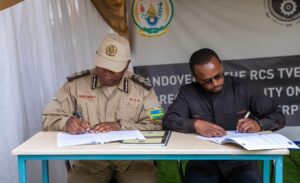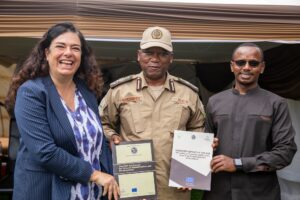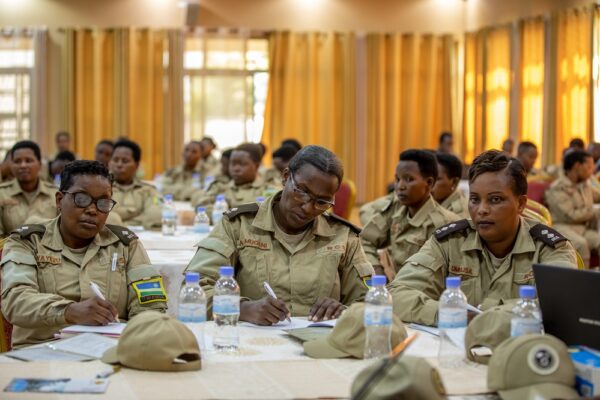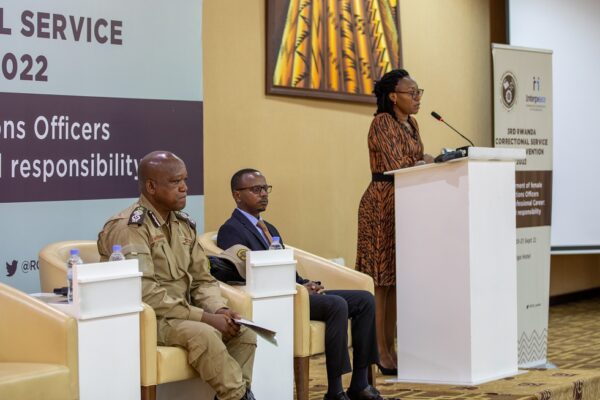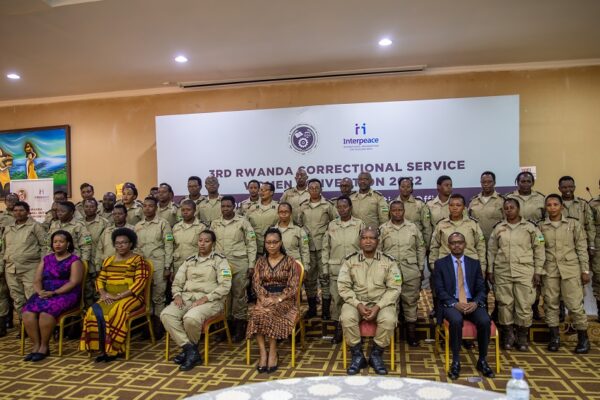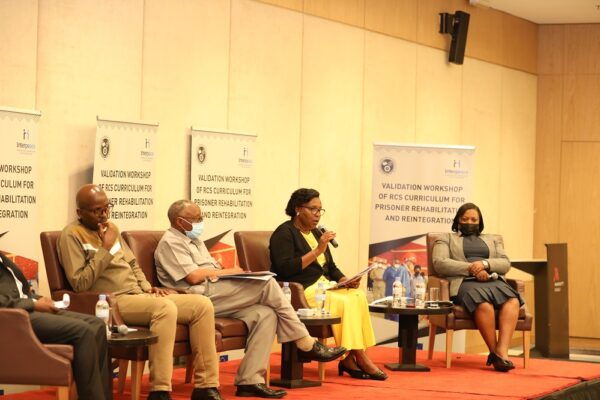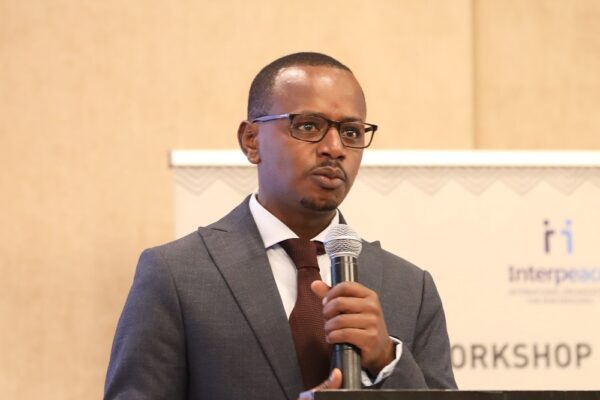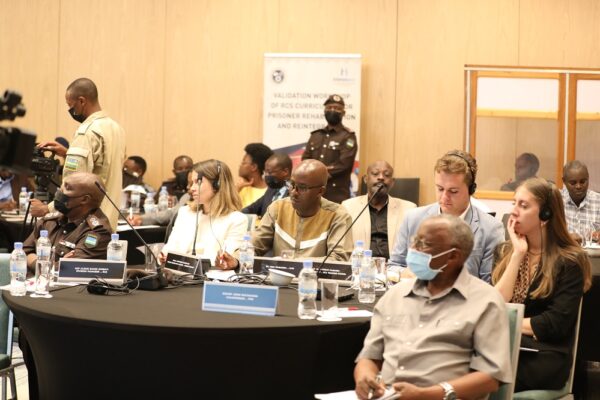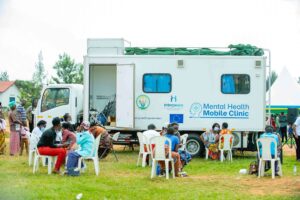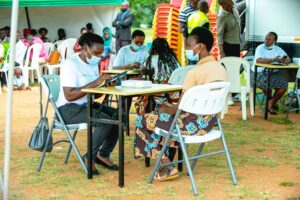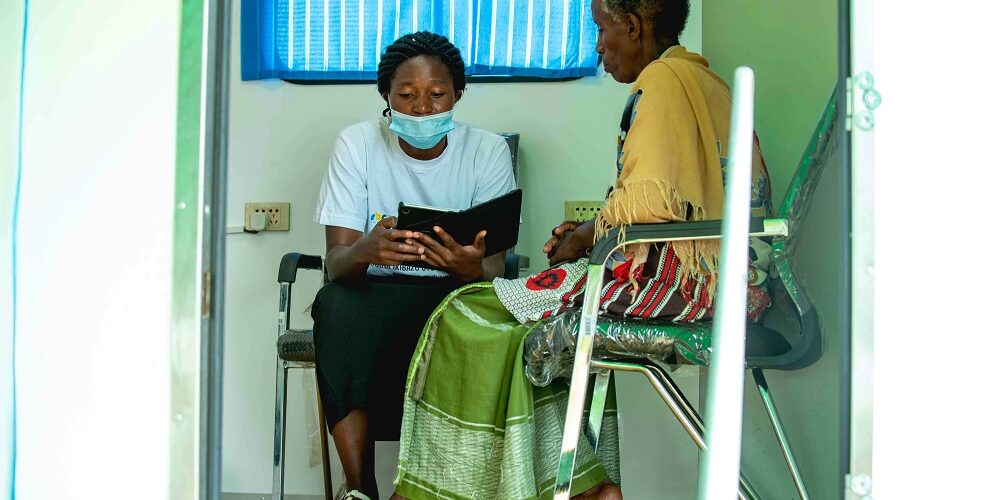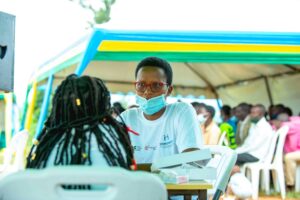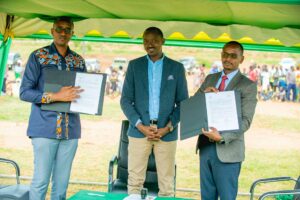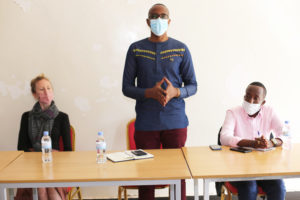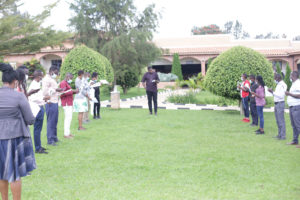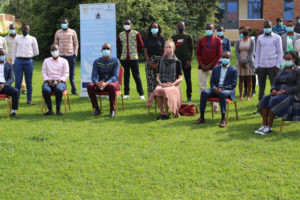Empowering prisoners with hands-on skills for rehabilitation and social reintegration
Adequate prisoner rehabilitation and reintegration is key to maintaining peace and cohesion within and across families and communities in Rwanda, given its tragic past of the 1994 Genocide against the Tutsi.
Prisoner rehabilitation that takes into consideration the social and emotional well-being of prisoners, especially those convicted for crimes related to the genocide, and ensures they can acquire hands-on skills will contribute to their effective reintegration, reduce recidivism, and foster social cohesion among Rwandans. It is particularly important now because, 28 years after the genocide, a significant proportion of genocide perpetrators have completed their sentences and returned to their communities.
On November 10, 2022, Interpeace handed over to the Rwanda Correctional Service (RCS) a Technical and Vocational Education and Training (TVET) training facility and equipment constructed in Bugesera Prison, Eastern Rwanda, as part of its support to prisoner rehabilitation and reintegration in Rwanda. The TVET facility was constructed in line with the "Reinforcing Community Capacities for Social Cohesion and Reconciliation through Societal Trauma Healing in Bugesera District" pilot programme, funded by the European Union (EU) and co-implemented by Interpeace and Prison Fellowship Rwanda.
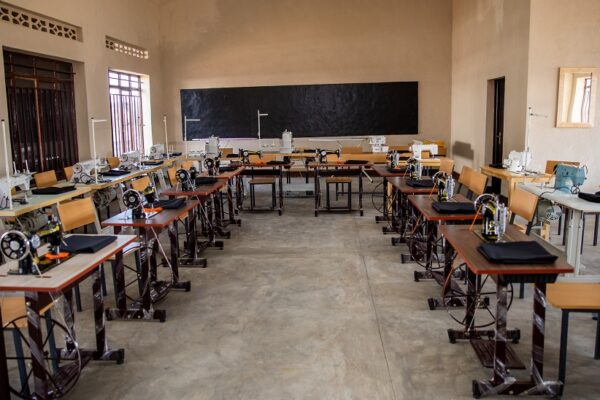
It will enable prisoners to learn technical and practical skills in various trades, such as welding and tailoring. Those skills will help them earn a living upon release and effectively integrate into their families and communities.
The training facility will follow the Rwanda TVET Board curriculum taught in all TVET schools across the country. Upon completion of the curriculum, trained prisoners will obtain an official certificate issued by the Ministry of Education through the Rwanda TVET Board, which will enable them to easily integrate into the job market after release.
One of the prisoners, who is part of the first cohort of 60 students, is confident that being enrolled in the training programme has started to boost his self-confidence as a functional member of society.
"I was worried about how I was going to catch up with the significant changes that occurred during my 10 years in prison and how I was going to integrate back into the job market so I could provide for myself and my family. This TVET facility is a timely solution for my worries." He emphasized.
The training facility will benefit more than 3000 prisoners who are detained in Bugesera prison.
Interpeace also handed over to Rwanda Correctional Service standardized curriculum that will guide the adequate rehabilitation and reintegration of prisoners. Validated in July 2022, the curriculum was developed with financial support from Interpeace and will be implemented in all prisons across the country. More on the curriculum here: http://bit.ly/3Ex2CzL
Kayitare Frank, Interpeace Country Representative in Rwanda, stated that both the TVET training facility in Bugesera Prison and the developed curriculum complement the work Interpeace and its partners have been doing to address post-genocide challenges related to mental health, social cohesion, and livelihoods in Rwanda.
The Commissioner General of RCS, Commissioner General of Prisons Juvenal Marizamunda, appreciates the partnership with Interpeace and the European Union that has significantly contributed to achieving RCS’s goal of transforming prisoners into productive members of society and contributing to fostering social cohesion among Rwandans.
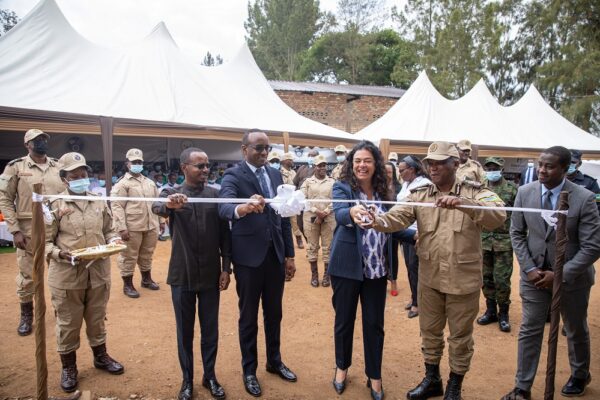
The Ambassador of the EU to Rwanda, Belen Calvo Uyarra, who graced the handover event, applauded the initiative, saying, "I am very pleased to note that this initiative is part of our flagship programme being implemented by Interpeace to foster social cohesion in Rwanda." "I am sure that this facility will empower inmates to become productive members of society upon their release." Said Her Excellency Uyarra.
Similar support will be extended to five more districts in Rwanda, namely: Musanze, Nyamagabe, Ngoma, Nyabihu, and Nyagatare (including the prisons in those districts) with funding from the Swedish International Development Cooperation Agency (Sida).
